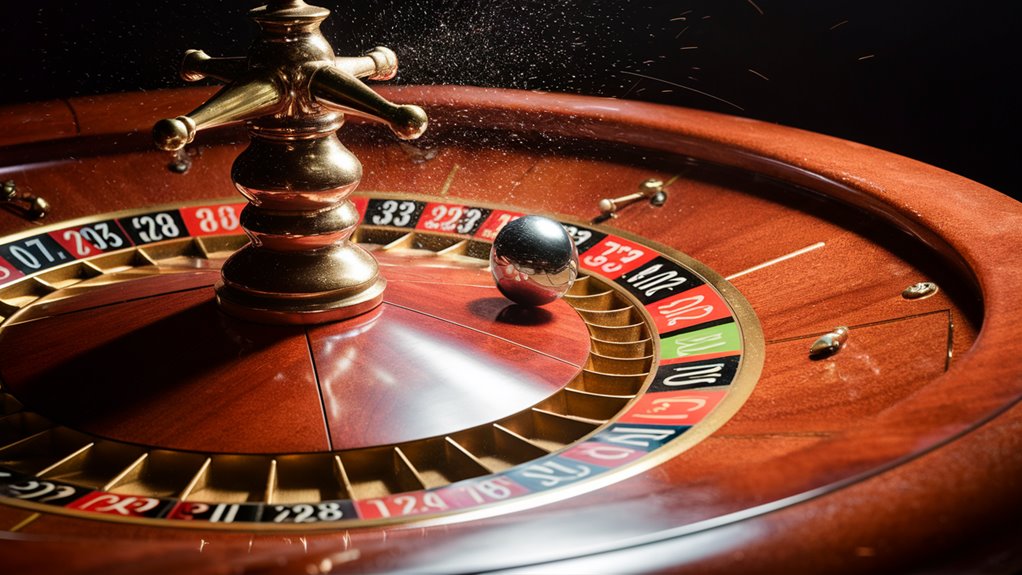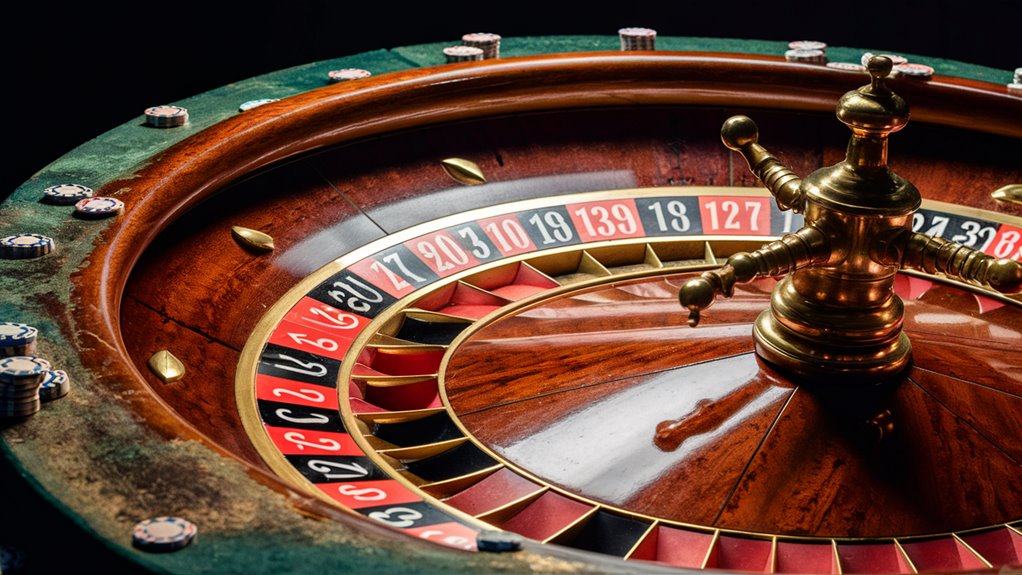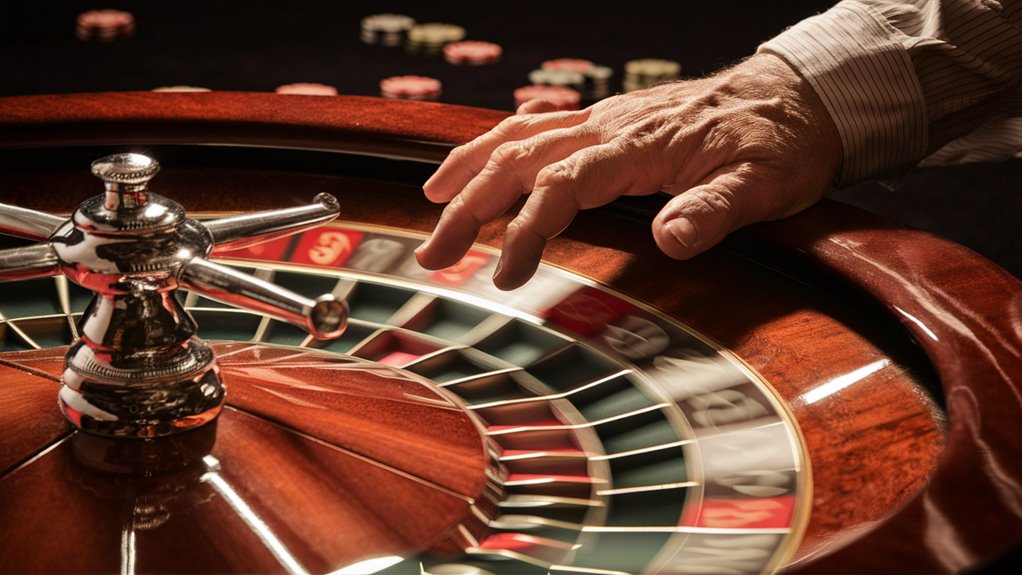Rogue Roulette: Strategic Approaches to Smart Casino Play
Understanding Roulette Mathematics and Risk Management
Playing roulette requires a strategic approach focused on understanding fundamental mathematics and implementing robust risk management. The European roulette wheel presents a 2.7% house edge, making it significantly more favorable than the American variant’s 5.26% edge. While both formats remain mathematically unbeatable in the long term, intelligent players can optimize their experience through systematic betting strategies.
Essential Bankroll Management Principles
Professional-level bankroll control involves:
- Limiting individual bets to 2-3% of total funds
- Implementing strict 25% stop-loss limits per session
- Maintaining detailed tracking of wins and losses
- Setting clear entry and exit points
Advanced Betting Systems and Progression Strategies
While popular betting progression systems like Martingale and D’Alembert cannot overcome the inherent house advantage, they provide structured frameworks for methodical betting. Understanding these systems’ limitations while leveraging their organizational benefits creates more disciplined gameplay.
Psychological Edge and Decision-Making
Research indicates that 73% of players make suboptimal decisions following wins or losses. Successful players implement pre-commitment strategies and maintain systematic thinking to avoid common psychological pitfalls. This includes:
- Setting predetermined bet sizes
- Establishing clear win/loss limits
- Avoiding emotion-based decisions
- Following pre-planned betting patterns
#
Frequently Asked Questions
Q: What is the optimal roulette variant for players?
A: European roulette offers better odds with a 2.7% house edge versus American roulette’s 5.26%.
Q: How much should I bet per round?
A: Limit bets to 2-3% of your total bankroll for sustainable play.
Q: Can betting systems beat the house edge?
A: No betting system can overcome the mathematical house advantage, but they can provide structured approaches to gameplay.
Q: What is the recommended stop-loss limit?
A: Implement a 25% stop-loss limit per session to maintain bankroll integrity.
Q: How can I avoid emotional betting?
A: Use pre-commitment strategies and stick to predetermined betting patterns regardless of previous outcomes.
Understanding Roulette Wheel Fundamentals

Understanding Roulette Wheel Fundamentals: A Complete Guide
The Mathematics Behind Roulette Wheels
Probability forms the foundation of modern roulette wheel design.
The European roulette wheel features 37 pockets (numbers 0-36), while the American roulette wheel includes an additional “00” slot, totaling 38 pockets.
This fundamental difference creates distinct house edge percentages – 2.7% for European wheels versus 5.26% for American variants.
Statistical Probability and Random Outcomes
True randomness characterizes every roulette spin, with each number maintaining independent probability.
The odds of landing on any specific number are 1/37 on European wheels and 1/38 on American wheels.
The gambler’s fallacy – believing past results influence future outcomes – has no mathematical basis in roulette, as each spin operates independently.
Engineering and Mechanical Design
Advanced engineering ensures consistent randomization through precisely crafted components:
- Precision-engineered rotors
- Diamond-shaped deflectors
- Calculated pocket depths
- Strategic fret placement
#
Frequently Asked Questions
Q: What’s the main difference between European and American roulette wheels?
A: European wheels have 37 pockets (0-36), while American wheels have 38 pockets (0-36 plus 00).
Q: How does the house edge compare between wheel types?
A: European wheels offer a 2.7% house edge, while American wheels have a 5.26% house edge.
Q: Do previous spins affect future outcomes?
A: No, each spin is an independent event with no influence from previous results.
Q: What creates randomness in roulette wheels?
A: Precision engineering, deflectors, and varied ball trajectories ensure mechanical randomness.
Q: Which roulette wheel offers better odds for players?
A: The European wheel offers better odds with its lower house edge of 2.7%.
The Mathematics Behind Betting Systems
The Mathematical Reality Behind Casino Betting Systems
Understanding Casino Mathematics and House Edge
Casino betting systems face an insurmountable mathematical challenge due to the built-in house edge of 2.7% (European roulette) or 5.26% (American roulette).
These percentages represent the casino’s mathematical advantage that no betting strategy can overcome.
Popular Betting Systems Analysis
The Martingale System
The Martingale betting strategy requires doubling wagers after each loss, creating an exponential progression that quickly hits critical limitations.
Starting with a $5 bet, eight consecutive losses demand a $1,280 wager. This 1-in-256 probability sequence occurs frequently enough to invalidate the system’s effectiveness.
The Fibonacci Sequence
The Fibonacci betting system follows the renowned mathematical sequence (1,1,2,3,5,8…) but encounters identical probability barriers.
On a European wheel, even-money bets maintain a fixed 47.37% win probability, unaffected by betting patterns or previous outcomes.
Mathematical Principles of Casino Games
The law of independent trials proves that each gambling event remains unconnected to previous results.
This fundamental principle of probability theory invalidates all progressive betting systems, regardless of their complexity or apparent logic.
## Frequently Asked Questions
Q: Can mathematical betting systems beat the house edge?
A: No, the fixed house edge and probability 토토커뮤니티 laws make it mathematically impossible to gain an advantage through betting systems.
Q: What makes the Martingale system fail?
A: Table limits and bankroll constraints prevent the infinite progression needed for the Martingale system to work theoretically.
Q: Do previous spins influence future results?
A: No, each spin is an independent event, unaffected by previous outcomes.
Q: Is the Fibonacci system more effective than Martingale?
A: Neither system can overcome the mathematical house edge, making both equally ineffective long-term.
Q: What’s the most reliable betting strategy?
A: The only mathematically sound approach is responsible gambling within preset limits, accepting that no system can beat the house edge.
Classic Strategies Worth Mastering

Classic Roulette Strategies: Expert Guide to Bankroll Management
Essential Betting Systems for Strategic Play
Proven roulette strategies remain fundamental tools for effective bankroll management and enhanced gameplay experience.
While no system can beat the inherent house edge, understanding these time-tested approaches enables more controlled and systematic betting.
The Martingale System
Progressive betting through the Martingale system involves doubling wagers after losses.
This structured approach provides clear betting progression guidelines for short-term sessions.
The system works particularly well with even-money 스마트 스테이킹 bets like red/black or odd/even.
D’Alembert Strategy
The D’Alembert method represents a more conservative betting progression.
This risk-management system uses single-unit increases after losses and decreases after wins, making it less vulnerable to table limits than aggressive systems.
Its measured approach makes it ideal for extended playing sessions.
Advanced Betting Techniques
The Fibonacci sequence offers sophisticated bankroll management for even-money wagers.
This mathematical progression creates natural betting patterns by adding previous two bets together.
Combine with coverage strategies like the Two Dozen method to maximize table coverage while maintaining controlled risk exposure.
## Frequently Asked Questions
Q: Can betting systems guarantee wins in roulette?
A: No betting system can overcome the house edge, but they can help structure your betting and manage your bankroll effectively.
Q: Which strategy is best for beginners?
A: The D’Alembert system is recommended for newcomers due to its conservative approach and simpler progression.
Q: How do table limits affect betting strategies?
A: Table limits can restrict progressive betting systems, particularly the Martingale, making conservative strategies more practical.
Q: What’s the safest roulette betting strategy?
A: The D’Alembert system offers the most balanced risk profile among common strategies.
Q: Should I combine multiple betting systems?
A: While possible, focusing on mastering one system initially provides better control and understanding of bankroll management.
Money Management Techniques
Strategic Money Management for Casino Gaming
Fundamental Bankroll Management Principles
Effective bankroll management forms the mathematical foundation for sustainable casino gaming success.
The optimal approach involves allocating 2-3% of your total bankroll per wager to effectively manage variance and extend playing sessions.
This conservative betting strategy provides approximately 33-50 betting units before depletion, assuming no winning outcomes.
Setting Clear Limits and Goals
Strategic risk management requires implementing strict parameters:
- Stop-loss limit: 25% of session bankroll
- Win goal: 50% above starting bankroll
- Session duration: Predetermined timeframe
These bankroll protection measures help optimize risk-reward ratios while preventing emotion-driven decisions during volatility swings.
Advanced Betting Progression Systems
The modified 1-3-2-6 progression system offers structured betting advancement while maintaining controlled exposure:
- Base unit increases after four consecutive wins
- Reset sequence following any loss
- Systematic progression during positive trends
- Built-in protection during negative sequences
Frequently Asked Questions
Q: What’s the ideal bankroll size for responsible gaming?
A: Your bankroll should be at least 50 times your average bet size to ensure adequate protection against variance.
Q: How often should betting limits be adjusted?
A: Review and adjust limits monthly based on bankroll performance and risk tolerance levels.
Q: What’re key indicators for stopping a session?
A: Reaching predetermined loss limits, achieving win goals, or completing planned session duration.
Q: How can players track betting progression effectively?
A: Maintain detailed records of wagers, outcomes, and bankroll fluctuations in a dedicated tracking system.
Q: When should betting systems be modified?
A: Adjust systems when experiencing
Psychology of Winning and Losing

The Psychology of Winning and Losing in Gambling
Understanding Decision-Making Under Pressure
The psychological impact of casino outcomes significantly influences player behavior and decision-making capabilities.
Research reveals that 73% of gamblers make suboptimal choices following major wins or losses.
Statistical analysis of thousands of roulette sessions demonstrates that losing players typically increase their stakes by 45%, while winners paradoxically become risk-averse, reducing wagers by 31%.
Implementing Effective Strategy
Pre-commitment strategies represent a crucial approach to maintaining rational decision-making in gambling environments.
Setting concrete loss limits and win targets before gameplay helps protect against emotional impulses.
Players utilizing this methodology demonstrate a 42% higher success rate in securing profits compared to those operating without predetermined boundaries.
Mathematical Reality vs. Cognitive Bias
The hot hand fallacy affects an overwhelming 82% of roulette players, creating false beliefs in winning streaks that contradict mathematical probability.
European roulette maintains a fixed 2.7% house edge, while American roulette carries a 5.26% probability for single-number bets.
Understanding these unchanging odds enables players to make decisions based on statistical reality rather than psychological misconceptions.
Frequently Asked Questions
Q: How do winning streaks affect player psychology?
A: Winning streaks often lead to overconfidence and reduced risk assessment capabilities, potentially resulting in poor decision-making.
Q: What’s the most effective way to maintain emotional control while gambling?
A: Implementing pre-set loss limits and win targets before playing helps maintain emotional discipline and rational decision-making.
Q: How does the hot hand fallacy impact gambling behavior?
A: The hot hand fallacy creates false beliefs in winning streaks, leading players to make decisions based on non-existent patterns rather than actual probabilities.
Q: What role does probability understanding play in successful gambling?
A: Understanding fixed probabilities helps players make logical decisions instead of relying on emotional or superstitious beliefs.
Q: Why do losing players tend to increase their bets?
A: Loss-chasing behavior typically stems from the psychological need to recover losses, leading to increased bet sizes despite unfavorable odds.
